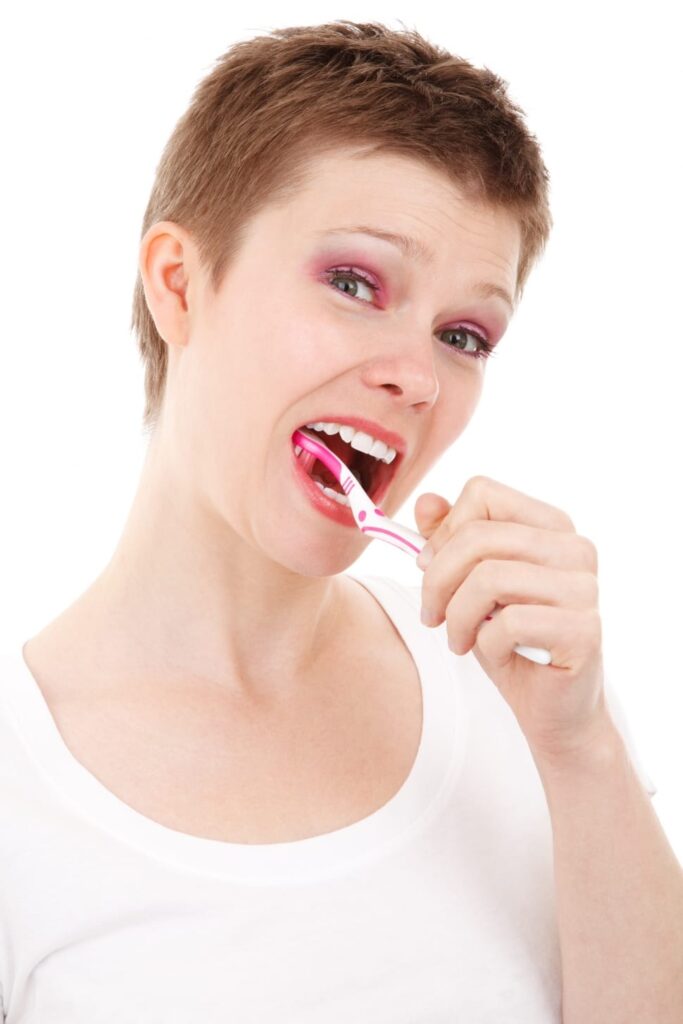In the realm of oral care, toothpaste takes centre stage as a daily companion in our quest for a radiant smile and optimal dental health. While its primary function may seem straightforward – to clean our teeth – there’s much more to toothpaste than meets the eye.

Toothpaste is more than just a pleasant-tasting substance; it’s a carefully crafted blend of ingredients designed to target specific oral health issues. The primary components include abrasives, detergents, humectants, binders, flavouring agents, and therapeutic agents. Abrasives, such as calcium carbonate or silica, help remove plaque and stains, while detergents like sodium lauryl sulphate create the foaming action that aids in spreading the toothpaste and reaching all surfaces of the teeth.
The Importance of Proper Brushing Technique:
Toothpaste is most effective when used in conjunction with proper brushing technique. Dentists recommend brushing for at least two minutes, twice a day, using a soft-bristled toothbrush. Applying the right amount of toothpaste (a pea-sized amount for adults and rice grain size amount for children) ensures optimal cleaning without unnecessary waste.
Common types of toothpaste:
- Fluoride Toothpaste: The most common type of toothpaste, fluoride toothpaste, contains fluoride as a key ingredient. Fluoride helps strengthen tooth enamel, preventing tooth decay and cavities. It is suitable for individuals of all ages, unless there are specific reasons to avoid fluoride.
- Whitening Toothpaste: Designed to remove surface stains and lighten the color of teeth. It contains abrasives and sometimes additional whitening agents. It is for those looking to enhance the whiteness of their teeth. It’s important to note that excessive use may lead to tooth sensitivity.
- Sensitive Teeth Toothpaste: Formulated to alleviate tooth sensitivity by desensitizing nerve endings. It contains ingredients like potassium nitrate or strontium chloride. Individuals with sensitive teeth who experience discomfort with hot, cold, or sweet stimuli can benefit from it.
- Gum Health Toothpaste: Geared towards preventing and reducing symptoms of gum disease. It may contain antibacterial agents and anti-inflammatory substances. Those with gingivitis or prone to gum issues use these toothpastes.
- Children’s Toothpaste: Typically has a milder flavor and lower fluoride content suitable for young children. It often features popular cartoon characters to make brushing more enjoyable. Children who are learning to brush their teeth; parents should supervise to prevent swallowing.
- Natural or Organic Toothpaste: Formulated with natural ingredients, avoiding artificial additives, sweeteners, and preservatives. The individuals seeking a more natural approach to oral care or those with sensitivities to certain chemicals should use these toothpastes.
- Tartar Control Toothpaste: Aimed at preventing the formation of tartar (hardened plaque) on teeth. Contains ingredients like pyrophosphates. Individuals prone to tartar build-up, which can contribute to gum disease might find it helpful.
- Herbal Toothpaste: Formulated with herbal extracts like eucalyptus or tea tree oil for their potential antimicrobial properties and natural flavors. Those individuals who prefer a more herbal or botanical approach to oral care can use it.
- Prescription Toothpaste: Some toothpaste formulations are available by prescription and may contain higher concentrations of certain ingredients for specific dental conditions. Individuals with advanced gum disease or other dental conditions requiring specialized care and thus might require these after consulting a dental professional.
At Teeth Care Centre, Dr. Pankti Patel, the best dentist in Ahmedabad, always suggests patients to brush twice a day to keep their oral health better and prevent tooth decay with fluoridated toothpastes, along with flossing and using mouthwash for the best results. Toothpaste is a daily essential that goes beyond mere oral hygiene. It’s a tailored solution to your unique dental needs, a defender against cavities, and a key player in maintaining a dazzling smile. The next time you squeeze that ribbon of toothpaste onto your toothbrush, remember that you’re not just cleaning your teeth – you’re embracing a personalized oral care routine that contributes to your overall well-being.